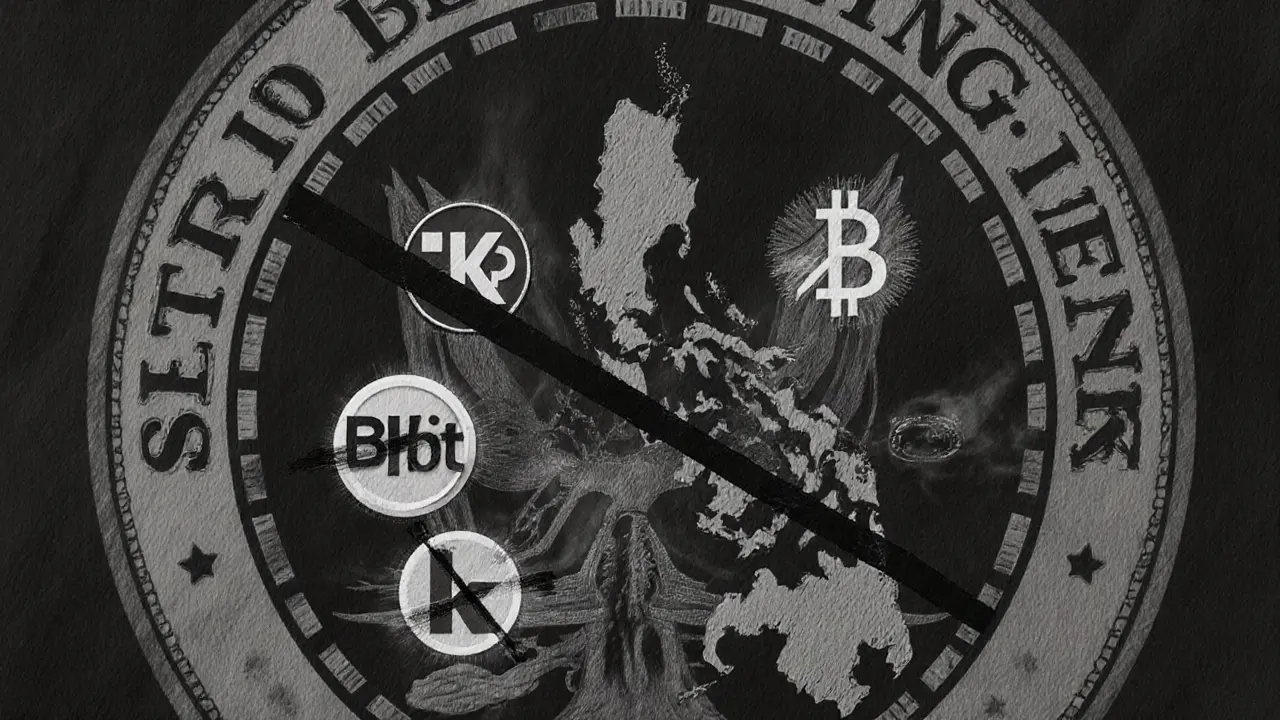The Philippines SEC blacklisted 15 major crypto exchanges in 2025 for operating without licenses. Learn which platforms are banned, why they were blocked, and what options Filipinos have now.
Bybit Philippines Ban: What Happened and What It Means for Crypto Users
When Bybit Philippines ban, the sudden suspension of Bybit’s operations in the Philippines by the Securities and Exchange Commission. Also known as Bybit shutdown in PH, it wasn’t just a local issue—it exposed how quickly crypto exchanges can lose legitimacy when they skip compliance. The ban didn’t come out of nowhere. Bybit, like many global exchanges, was offering derivatives and leveraged trading to retail users without proper licensing. The Philippines SEC had been warning platforms for months: no registration, no operations. Bybit ignored it. When the axe fell, thousands of Filipino traders lost access overnight. No warning. No grace period. Just a notice on the website saying trading was suspended.
This isn’t the first time a crypto exchange got shut down in Southeast Asia. In 2023, Binance faced similar pressure in Japan and Thailand. But the Bybit case stands out because it happened fast—and it hit users who thought they were safe using a "big name" platform. The real lesson? Size doesn’t protect you from regulation. What matters is whether the exchange follows local laws. The Philippines crypto regulation, a strict framework requiring all digital asset platforms to register and disclose risk disclosures to users. Also known as SEC PH crypto rules, it demands transparency, user protection, and anti-money laundering checks. Bybit didn’t meet any of them. Meanwhile, local players like Coins.ph and PDAX, which registered early, kept operating. They didn’t promise 100x returns. They didn’t hide their team. They followed the rules—and users stayed protected.
The crypto exchange ban, a regulatory action taken when an exchange operates without legal authorization, often resulting in frozen accounts and trading halts. Also known as exchange suspension, it’s becoming more common as countries catch up to crypto’s speed. The Philippines isn’t alone. India, Nigeria, and Turkey have all cracked down on unlicensed platforms. What’s changing is how fast regulators act. Five years ago, exchanges could operate in gray zones. Now, if you’re not registered, you’re illegal. And when regulators move, your funds aren’t safe just because you’re on a "popular" site.
So what now? If you’re in the Philippines—or anywhere else—never assume an exchange is safe just because it has a flashy website or big marketing budget. Check if it’s registered with your country’s financial authority. Look for real company info, not just a P.O. box. And if you’re holding assets on an exchange that gets banned, don’t panic. Move your coins to a wallet you control. Cold wallets, hardware wallets, even a simple paper wallet—those are yours. Exchange accounts? They’re not.
The posts below dive into what happened after the ban, how other exchanges are responding, and which platforms are actually following the rules. You’ll find reviews of exchanges that survived the crackdown, breakdowns of how regulators are changing the game, and real stories from users who lost access. This isn’t about fear. It’s about staying informed so you don’t get caught off guard next time.

